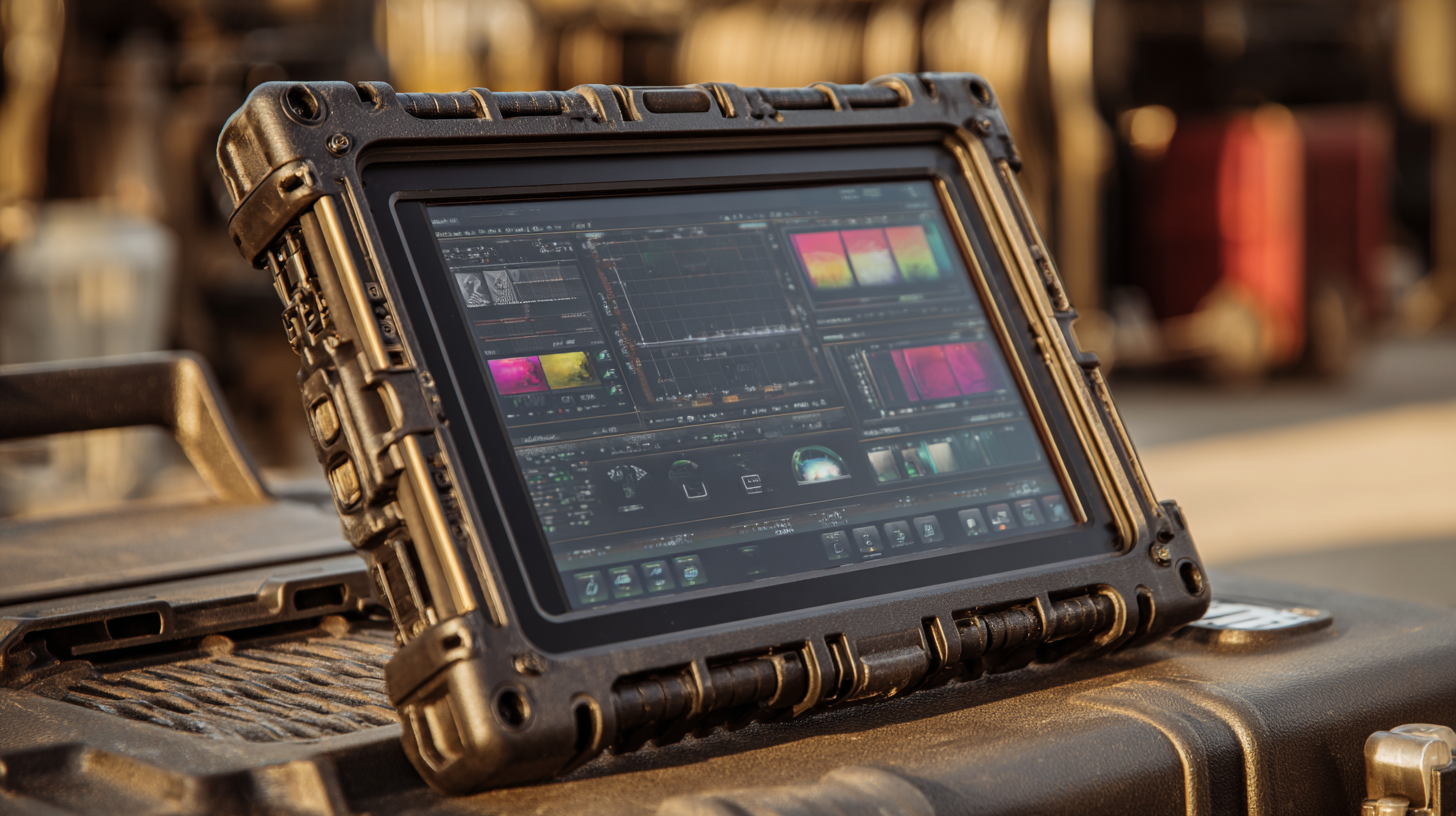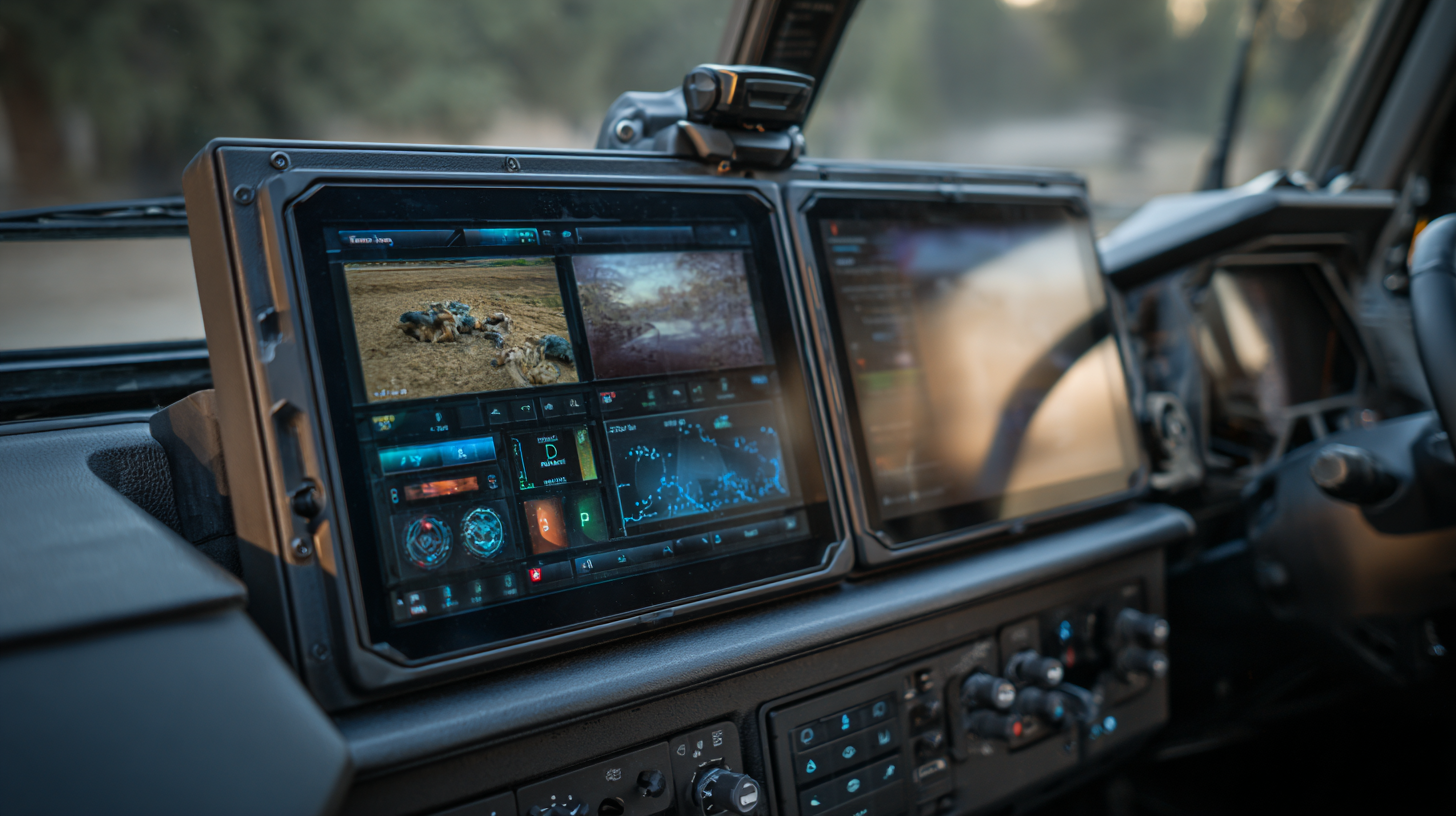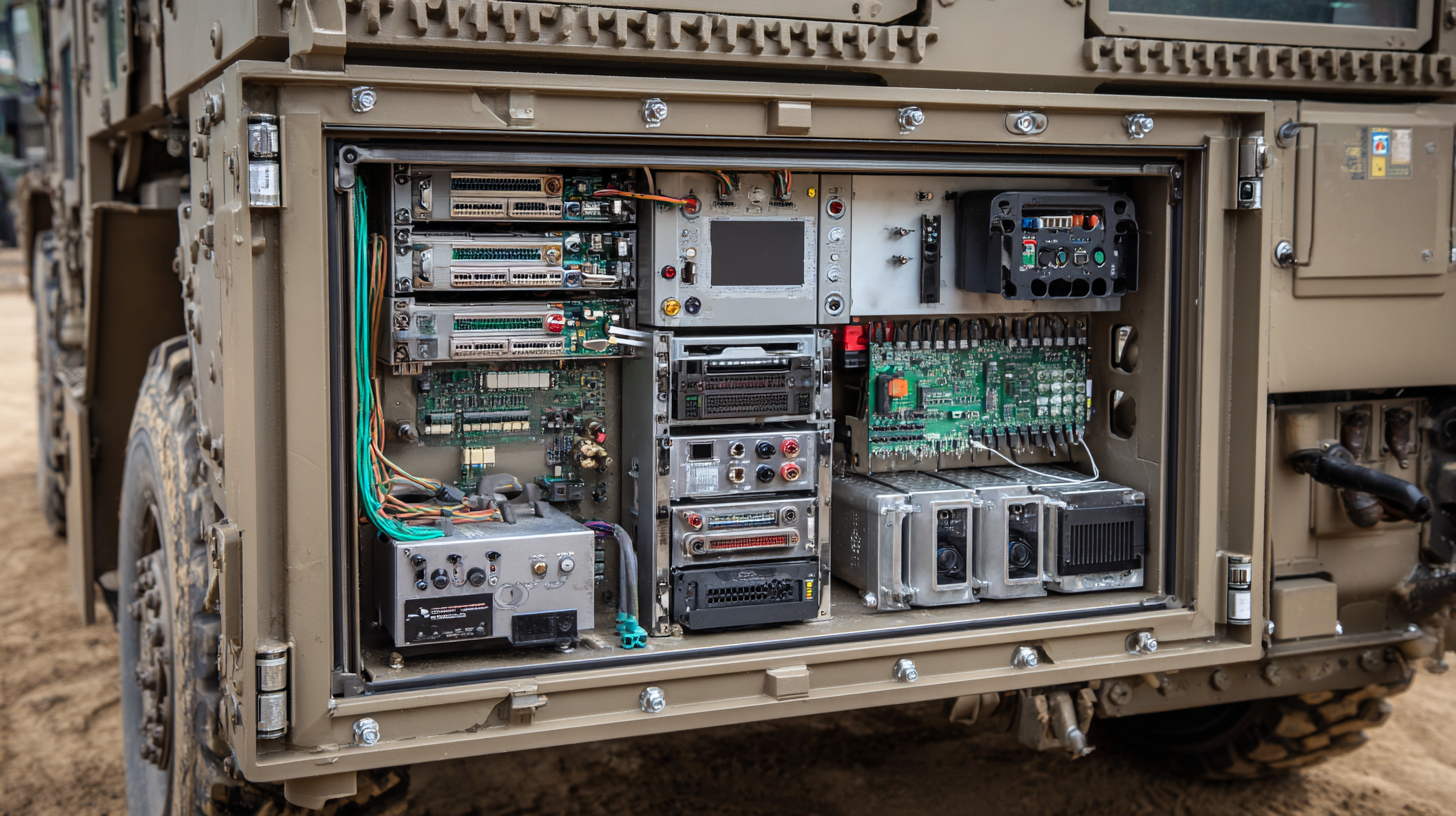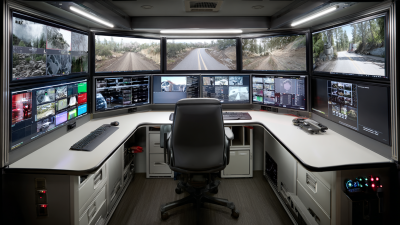5 Features That Make Rugged Panel Computers the Best Choice for Tough Environments
In today's fast-paced and demanding work environments, the need for reliable technology is more critical than ever. Rugged panel computers have emerged as essential tools that can withstand the harshest conditions while providing seamless functionality. Designed to endure extreme temperatures, moisture, dust, and mechanical shocks, these robust devices have become the preferred choice across various industries, including manufacturing, logistics, and outdoor field operations. With specific features tailored to meet the challenges of tough environments, a rugged panel computer not only enhances operational efficiency but also ensures longevity and reliability. In this blog, we will explore five standout features that set rugged panel computers apart as the best choice for those seeking durability without compromising on performance.

Essential Durability: Analyzing Rugged Panel Computers’ Toughness Metrics
Rugged panel computers are specifically designed to withstand the harshest conditions, making them ideal for industrial and outdoor applications. Their toughness metrics include IP ratings, which indicate resistance to dust and moisture. For instance, a device with an IP67 rating can be submerged in water for limited periods, ensuring functionality in wet environments. This level of protection is crucial in industries like construction and manufacturing, where equipment frequently encounters water, dust, and debris.
Another significant durability factor is the operating temperature range. Rugged panel computers can function effectively in extreme heat and cold, often operating between -20°C to 60°C. This versatility ensures continuous use in fluctuating environments, from freezing warehouses to sweltering outdoor job sites. Additionally, features such as shock resistance and reinforced casings further enhance their durability. By leveraging advanced materials and engineering, these computers remain operational under considerable stress, making them a reliable choice for those in demanding settings.
Temperature Tolerance: Performance in Extreme Heat and Cold Environments
In today's industrial landscape, rugged panel computers have emerged as essential tools for operations in extreme environments. One of the most critical features that set these devices apart is their temperature tolerance. According to a report from VDC Research, approximately 50% of industrial equipment failures can be attributed to temperature extremes, underscoring the need for reliable computing solutions that can withstand severe conditions. Rugged panel computers are specifically designed to operate in temperatures ranging from -40°C to 70°C, making them ideal for industries such as oil and gas, manufacturing, and transportation, where they frequently encounter harsh climates.
The durability of rugged panel computers extends beyond just temperature tolerance. Many models feature advanced thermal management systems that ensure optimal performance even when exposed to direct sunlight or extreme cold. This capability is vital, as a study by the International Journal of Advanced Manufacturing Technology highlighted that machines exposed to fluctuating temperatures can incur significant downtime, costing organizations up to $200,000 per incident. By leveraging robust testing and certification standards such as MIL-STD-810 and IP ratings, rugged panel computers minimize the risk of failure, enabling seamless operation in even the toughest environments.
IP Ratings Explained: Understanding Ingress Protection for Rugged Devices
When it comes to rugged panel computers, understanding the IP (Ingress Protection) ratings is crucial for determining their suitability for harsh environments. IP ratings provide a standardized way to assess how well a device can withstand both solid and liquid intrusions. The first digit of the rating indicates the level of protection against solid objects, ranging from 0 (no protection) to 6 (dust-tight). Meanwhile, the second digit specifies the level of protection against liquids, from 0 (no protection) to 9K (protection against high-pressure steam). This clear classification helps businesses select equipment that can endure the specific challenges of their working conditions.
In industries such as manufacturing, construction, and logistics, where exposure to dust, moisture, and rough handling is common, rugged panel computers with high IP ratings become indispensable. For instance, a device rated at IP65 is both dust-tight and protected against low-pressure water jets, making it ideal for outdoor or wet environments. Understanding these ratings allows organizations to make informed decisions, ensuring that their technology investments can perform reliably without compromising durability in the face of tough operational demands.
5 Features That Make Rugged Panel Computers the Best Choice for Tough Environments - IP Ratings Explained: Understanding Ingress Protection for Rugged Devices
| Feature | Description | IP Rating | Protection Level | Typical Use Case |
|---|---|---|---|---|
| Durability | Designed to withstand harsh conditions and impacts. | IP65 | Dust-tight and water-resistant against low-pressure water jets. | Outdoor applications in construction sites. |
| Temperature Resistance | Operates in extreme temperatures ranging from -20°C to 60°C. | IP67 | Dust-tight and protected against temporary immersion in water. | Laboratory and industrial processes. |
| Vibration & Shock Resistance | Engineered to endure vibrations and shocks caused by machinery. | IP54 | Protected against dust limited ingress and water splashes. | Automation industries with heavy machinery. |
| Display Readability | Sunlight-readable screens for visibility in bright environments. | IP66 | Dust-tight and protected against powerful water jets. | Outdoor applications like fieldwork and surveying. |
| Extensive Connectivity | Multiple ports for various connectivity options including Wi-Fi, Bluetooth, and USB. | IP68 | Complete protection against dust and immersion in water beyond 1 meter. | Logistics and warehousing environments. |
Enhanced Connectivity: Importance of Reliable Communication in Harsh Settings
 In harsh environments, maintaining reliable communication is critical, and rugged panel computers excel in this aspect. Equipped with advanced connectivity options, these devices ensure seamless communication even in challenging settings where traditional computers might fail.
With features like robust Wi-Fi, Bluetooth capabilities, and even cellular connectivity, rugged panel computers enable operators to stay connected with their team and access vital information in real time, all while enduring extreme temperatures, humidity, and dust.
In harsh environments, maintaining reliable communication is critical, and rugged panel computers excel in this aspect. Equipped with advanced connectivity options, these devices ensure seamless communication even in challenging settings where traditional computers might fail.
With features like robust Wi-Fi, Bluetooth capabilities, and even cellular connectivity, rugged panel computers enable operators to stay connected with their team and access vital information in real time, all while enduring extreme temperatures, humidity, and dust.
Moreover, the design of rugged panel computers isn't just about durability; it also emphasizes the ability to integrate easily with various communication protocols. Whether used in mining, construction, or military operations, these computers provide flexibility to connect with other devices and systems, ensuring that data flows uninterrupted. This enhanced connectivity not only boosts productivity but also enhances safety, allowing workers to make informed decisions promptly. In environments where every second counts, the ability to communicate flawlessly can be the difference between success and failure.
User-Centric Design: Ergonomics and Usability in Demanding Conditions
When it comes to rugged panel computers designed for tough environments, user-centric design is paramount. In demanding conditions, where physical and operational stresses are common, it's essential to prioritize ergonomics and usability. These computers often feature touchscreens that are not only highly responsive but are also designed for use with gloves or in wet conditions. This ensures that workers can maintain efficiency without compromising safety or accessibility, even in the harshest settings.

Another significant aspect of user-centric design is the layout and functionality of the controls. Rugged panel computers often incorporate intuitive button placements and customizable interfaces that cater to the specific needs of users in various industries, such as manufacturing or field services. This tailored approach allows operators to access the features they need quickly and effortlessly, minimizing downtime and enhancing productivity. By focusing on ergonomics, these devices help reduce fatigue and strain during prolonged use, making them an ideal choice for professionals who work in challenging environments.
Related Posts
-

The Comprehensive Ultimate Guide to Choosing the Right Rugged Panel Computer for Your Needs
-

Ultimate Guide to Choosing the Right Rugged Panel PC for Your Business Needs
-

The Definitive Guide to Rugged Touch Panel PCs Enhancing Industrial Operations and Productivity
-

How to Choose the Right Rugged PC for Your Industrial Needs
-

How to Optimize Your Industrial Computing Products for Maximum Efficiency
-

Solutions for Enhanced Industrial Durability with Rugged Touch Panel PCs in Harsh Environments

